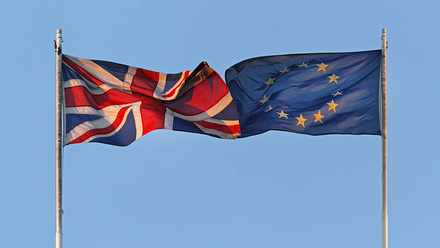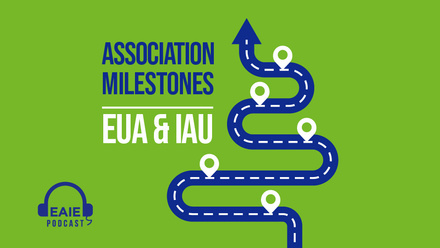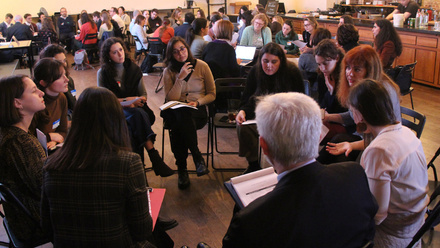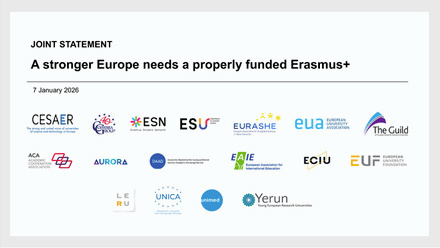EU’s Multiannual Financial Framework 2028-2034: What’s in it for Europe’s higher education institutions?
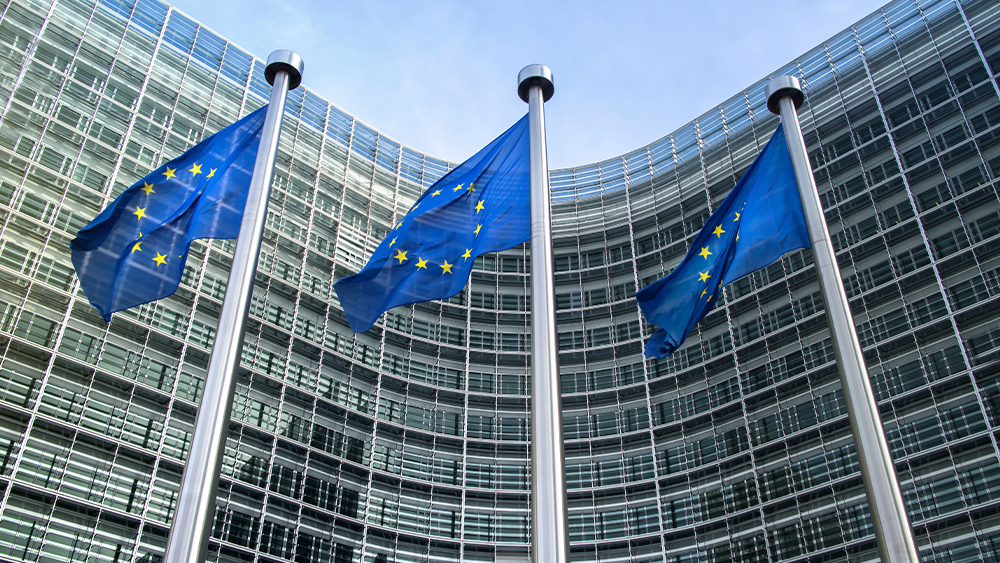
Strategic pivot towards competitiveness, resilience and global influence
On 16 July 2025, the European Commission unveiled its proposal for "an ambitious and dynamic" Multiannual Financial Framework (MFF) totalling €1.98 trillion, representing an approximate 47% increase in real terms compared to the current MFF. The proposal signals a strategic shift towards innovation, research and social policy, all framed within a more outward-looking, globally engaged EU.
Both Horizon Europe and Erasmus+ (now incorporating the European Solidarity Corps) see substantial budget increases around 100% and 50% in real terms, respectively. Horizon Europe is proposed to receive a budget of €175 billion and Erasmus+ just under €41 billion although the budget profile, ie the distribution among sectors or over the years is not yet known. A new programme, AgoraEU, combining Creative Europe and CERV, is set to receive €8.6 billion to promote shared values and support Europe’s cultural and creative sectors. Meanwhile, the Global Europe instrument, merging existing external action programmes such as NDICI, IPA, Humanitarian Aid and Ukraine Facility, highlights the EU’s growing emphasis on enlargement, neighbourhood relations and international partnerships.
Framed around competitiveness, innovation, global influence and shared values, the new MFF sends a generally positive signal to the higher education and research sectors. Increased budget proposals for the sector’s most valued programmes raise hopes for sustained and potentially expanded support for core priorities — mobility, research excellence, European University alliances, global cooperation and inclusion and diversity.
The proposal signals a strategic shift towards innovation, research and social policy, all framed within a more outward-looking, globally engaged EU.
Political steering of research and education
Yet, the first responses from stakeholders, coming in despite the summer break, show that it’s far too early to celebrate. While education and research are receiving unprecedented political attention, this comes with tighter political steering and heightened expectations. Horizon Europe will be closely aligned with the new European Competitiveness Fund, centred on four strategic priorities: clean transition and industrial decarbonisation, digital transformation, health and biotechnology and defence and space. Notably, defence and space receive a fivefold increase in funding, signalling a push toward dual-use technologies and higher technological readiness levels.
Erasmus+, meanwhile, seems to be pivoting towards societal transformation and resilience, system-level reform and geopolitical positioning beyond its longstanding emphasis on mobility, inclusion and civic engagement. Future priorities include skills development and institutional cooperation in key strategic domains such as clean energy, digital skills, advanced manufacturing, circular economy and even defence-relevant education.
As the Commission puts it: "This enhanced funding will contribute to a resilient, competitive and cohesive Europe by promoting high quality lifelong learning, enhancing skills and competences for life and for jobs for all, while fostering Union values, democratic and societal participation, solidarity, social inclusion and equal opportunities, in the EU and beyond."
Yet, the first responses from stakeholders, coming in despite the summer break, show that it’s far too early to celebrate.
Despite rumours in the weeks before the publication of the MFF, it has been confirmed that Erasmus+ will continue to be the home of the European Universities Initiative. In this way, Erasmus+ is expected to support the core educational mission of the European University Alliances, enabling them to have a long-term systemic impact. Meanwhile, Horizon Europe and the European Competitiveness Fund would provide additional support to help the alliances fulfil their holistic potential although the support modalities are not yet known.
While aligning Horizon Europe and Erasmus+ with broader EU strategic goals may be appropriate and much needed, the question remains: will the increased budgets be sufficient to deliver on this broadened scope without diluting core missions? Another concern is whether all players — especially smaller ones or those in less developed areas — will be able to meaningfully participate, given growing regional disparities, as the latest Regional Innovation Scoreboard confirms a widening gap. Finally, the strong focus on strategic technological areas has left many in the social sciences and humanities uneasy, as these fields — long central to Europe’s social progress and core values — now risk being sidelined. Overlooking the chance to meaningfully link them to initiatives like the Union of Skills, Global Europe or even the European Competitiveness Fund would be a missed opportunity.
While aligning Horizon Europe and Erasmus+ with broader EU strategic goals may be appropriate and much needed, the question remains: will the increased budgets be sufficient to deliver on this broadened scope without diluting core missions?
Funding dependencies and the national-level squeeze
While national governments remain the primary funders of higher education and research, EU programmes provide crucial support for transnational cooperation. Yet uncertainty looms around the national budgets for 2028–2034 and the share of higher education funding within the revamped Erasmus+ remains unclear. Past experience shows that national cuts often increase reliance on EU funds, exacerbating pressure on programmes and institutions.
The new MFF introduces National and Regional Partnership Plans (NRPPs), which consolidate EU funding streams for cohesion, agriculture, social policies and internal security. This restructuring could potentially push competition among sectors to national level. As NRPPs become increasingly loaded with political goals, there is a risk that higher education and research needs (eg in terms of infrastructure or innovation ecosystem) —could be overlooked, especially in smaller institutions or less developed regions. The past experience of National Recovery and Resilience Plans (NRRPs) offers a cautionary example: only a handful of member states prioritised (international) higher education and often under tight timelines. With so many open questions — on budget distribution, action architecture, implementation mechanisms and national-level dynamics — the negotiations ahead promise to be technically complex and politically charged.
The upcoming EAIE Conference in Gothenburg provides a timely opportunity to explore the implications for Europe’s higher education and research community. The conference programme includes various sessions linked to these developments, such as:
- The Spotlight session organised by the EAIE's Thematic Committee European-Funded programmes. This session will bring together representatives from DG EAC, Erasmus+ national agencies and student organisations and will take place on Wednesday 10 September (09:00-10:30 CEST).
- The session 'Designing the future: shaping higher education mobility and cooperation actions in Erasmus+ 2028-2034'. The session, hosted by two representatives from DG EAC of the European Commission, will take place on Tuesday 9 September (13:30 – 15:00 CEST).

